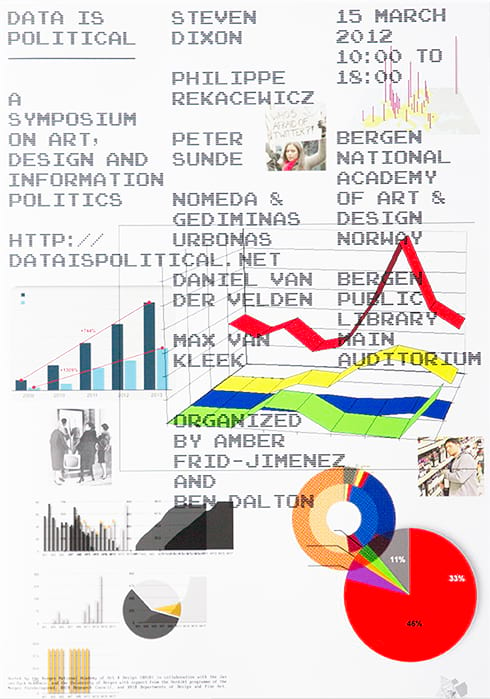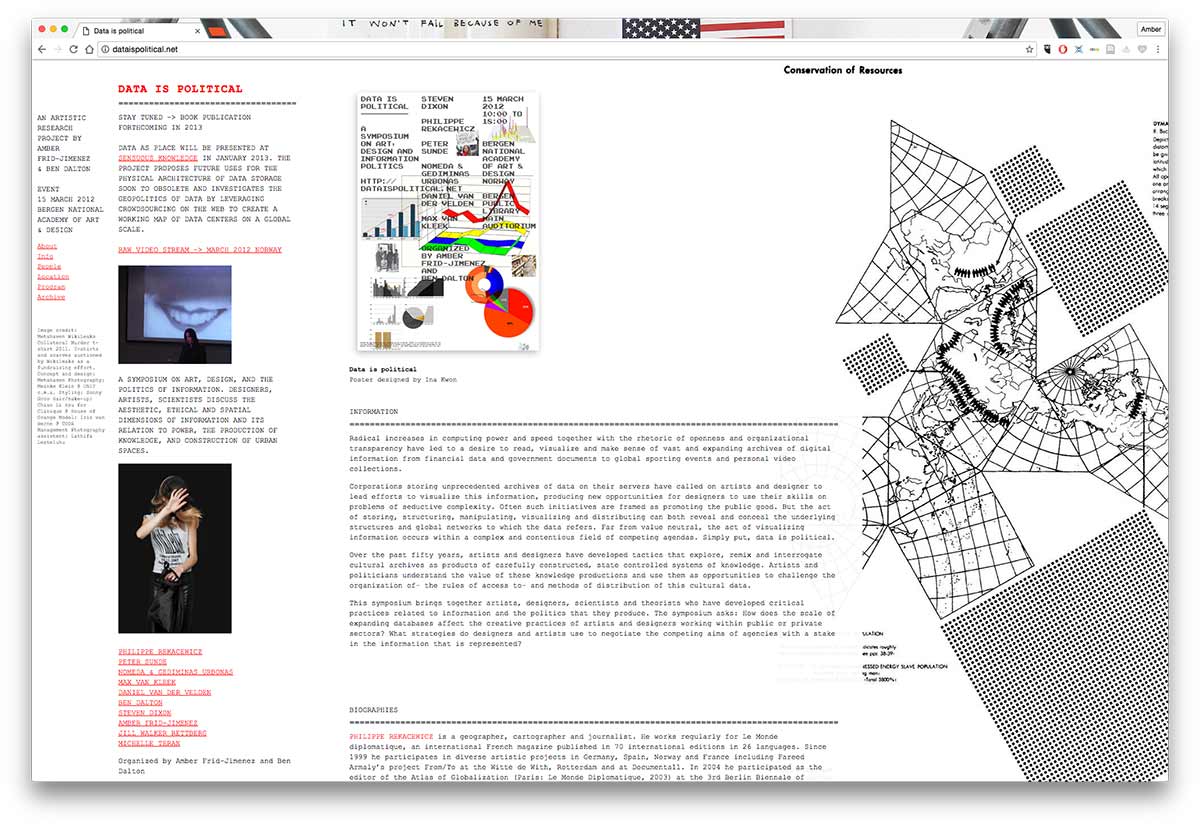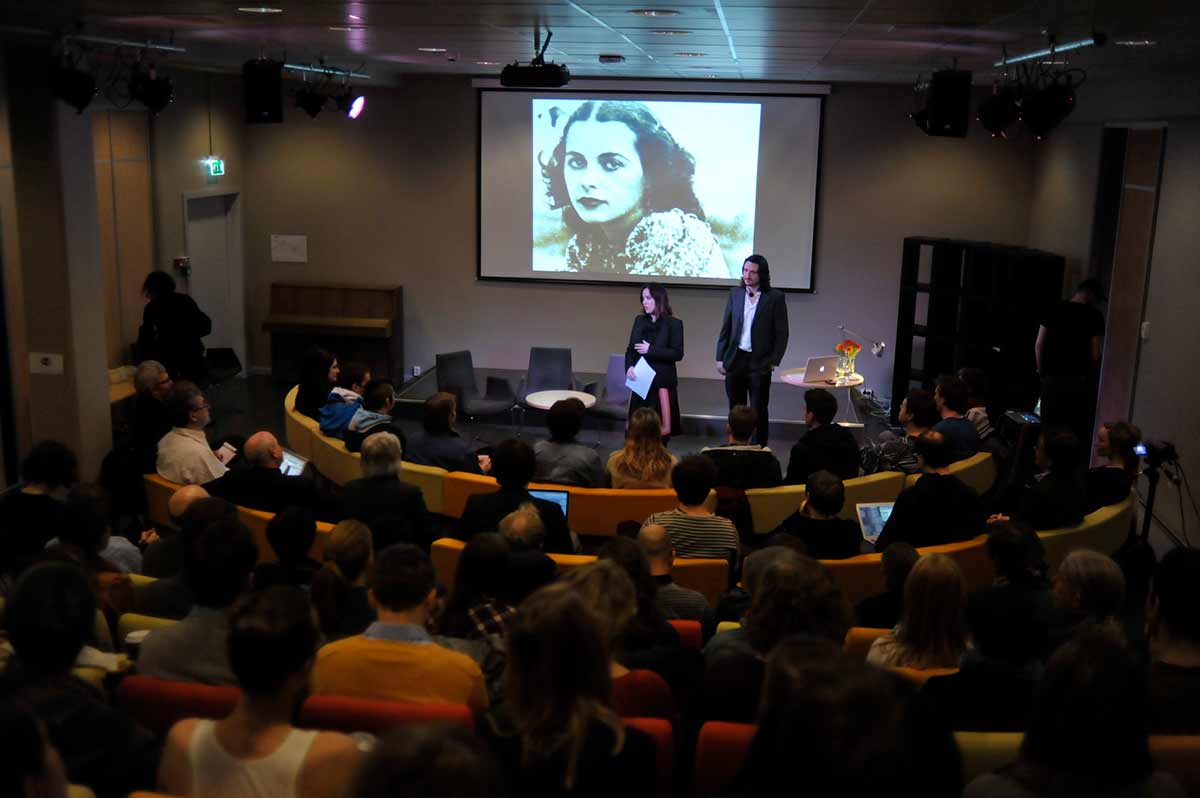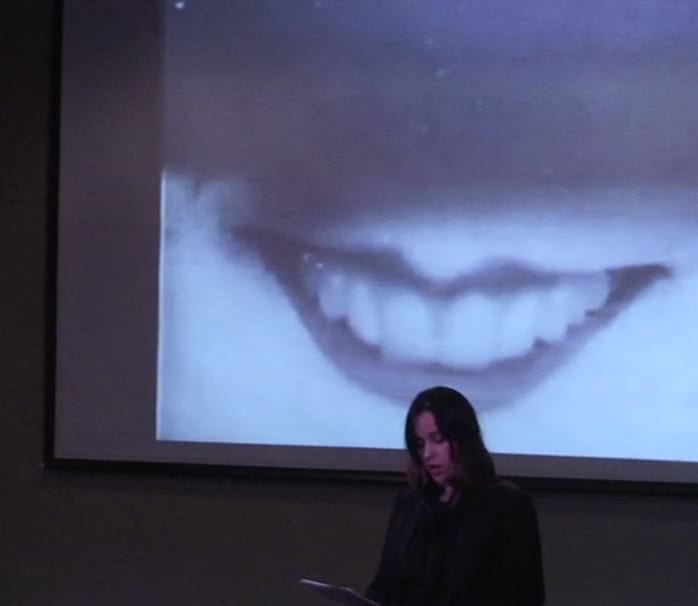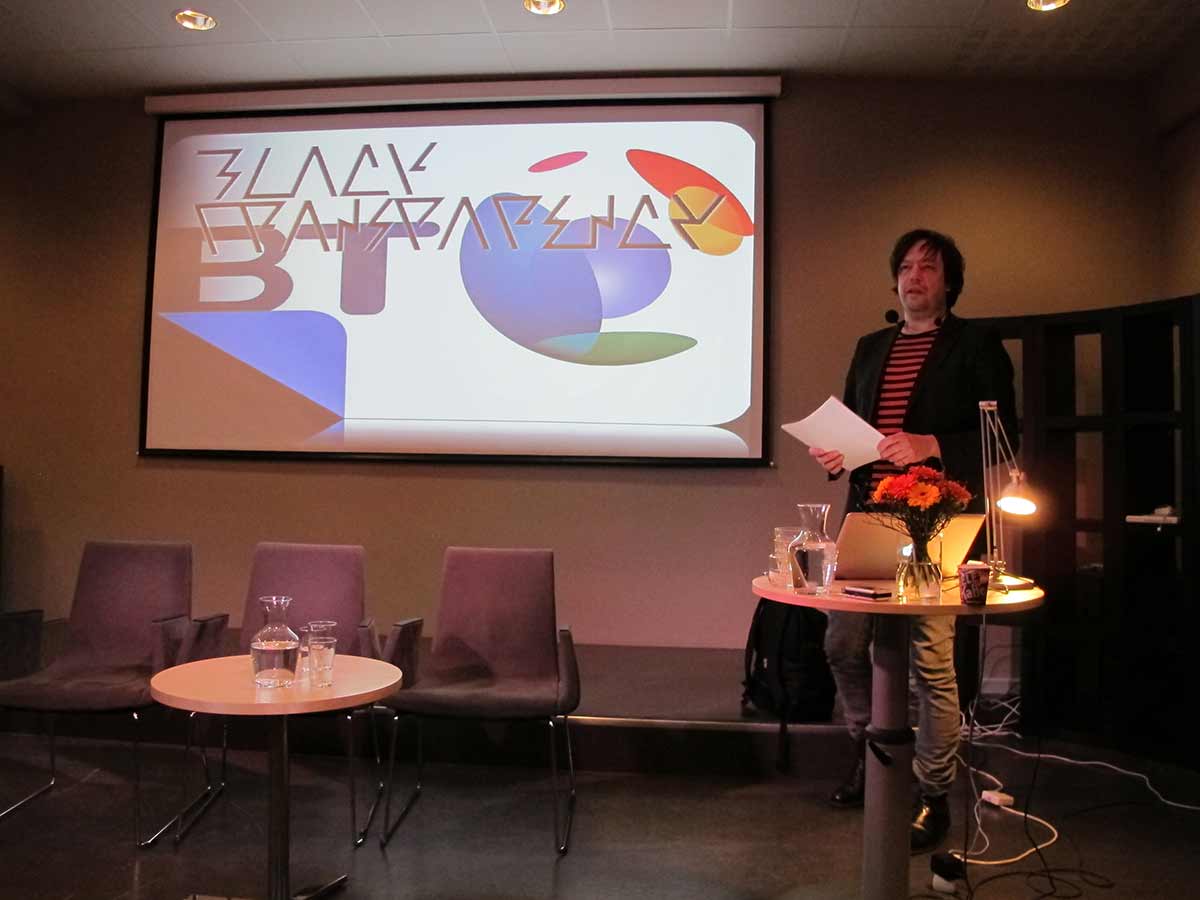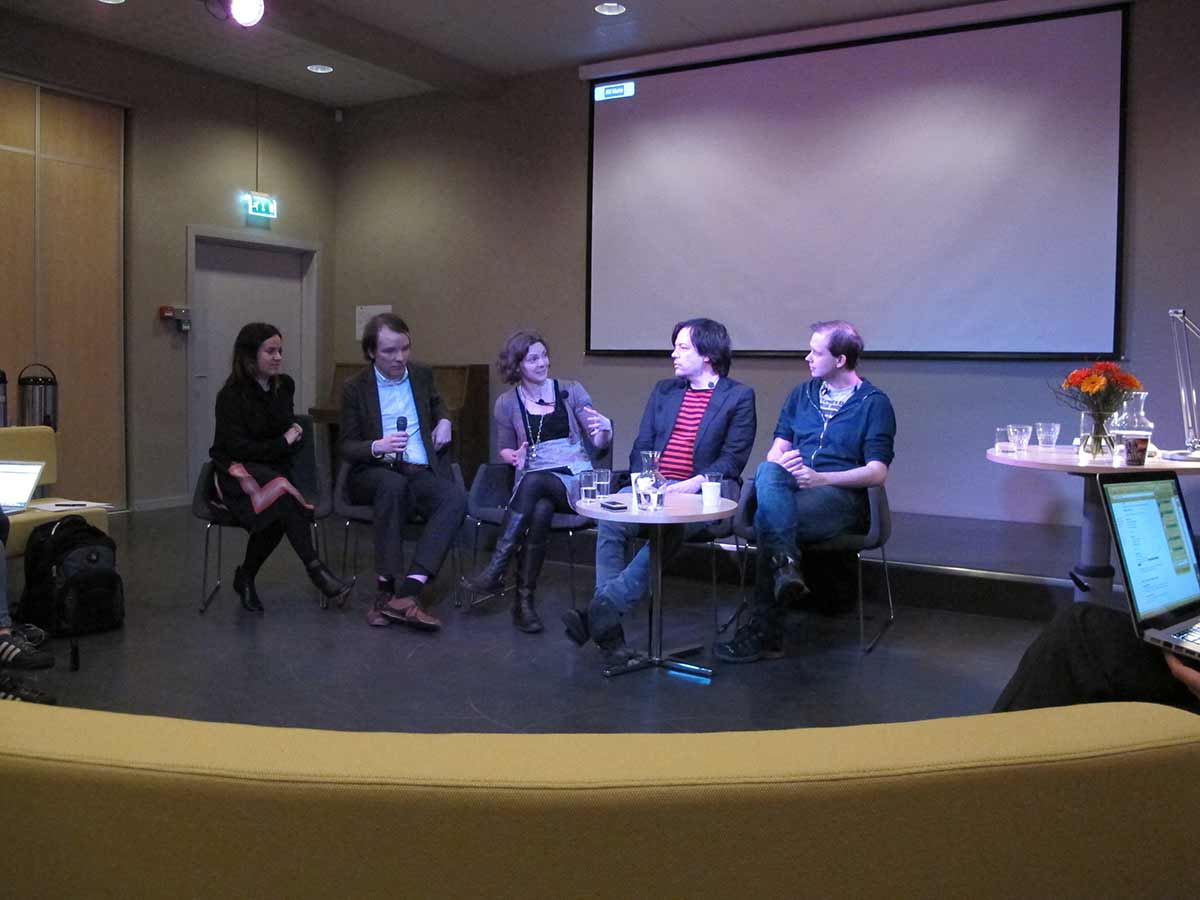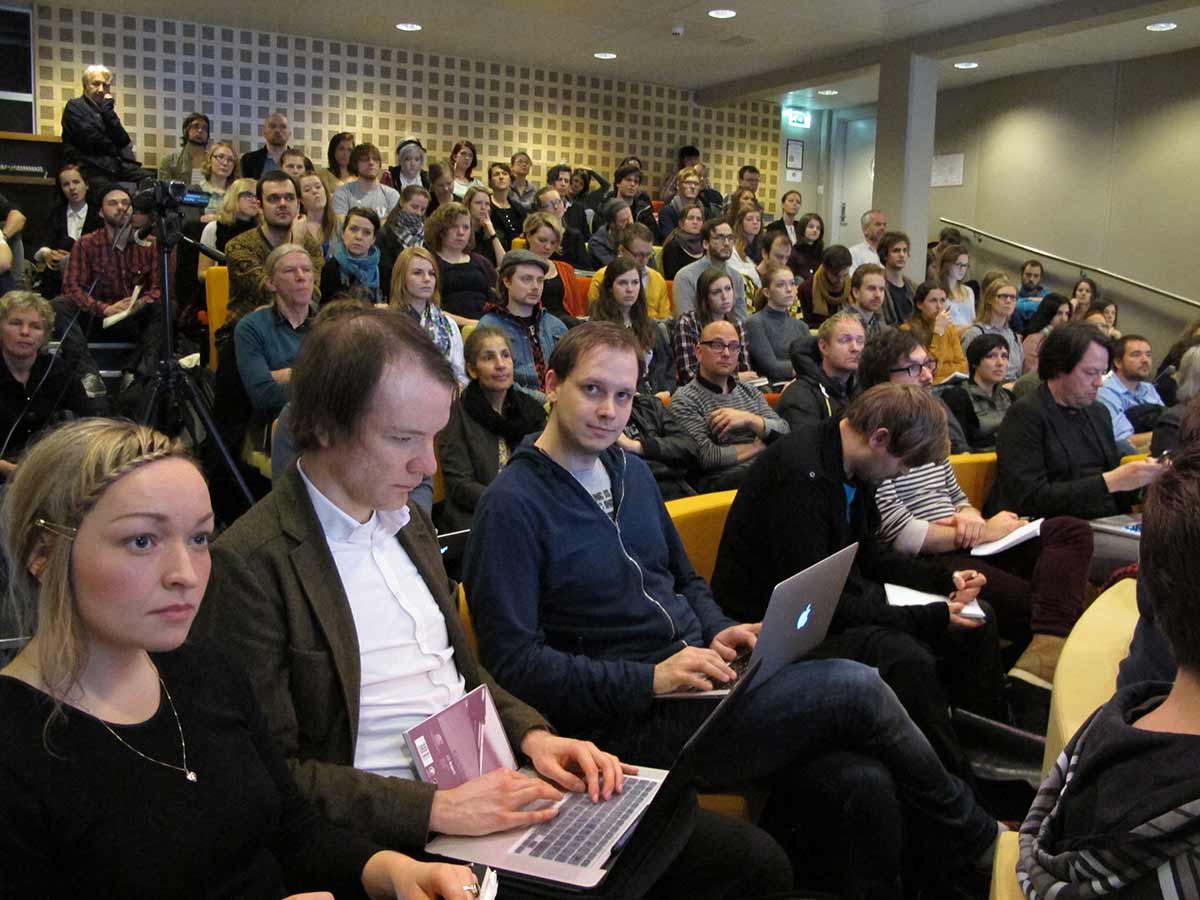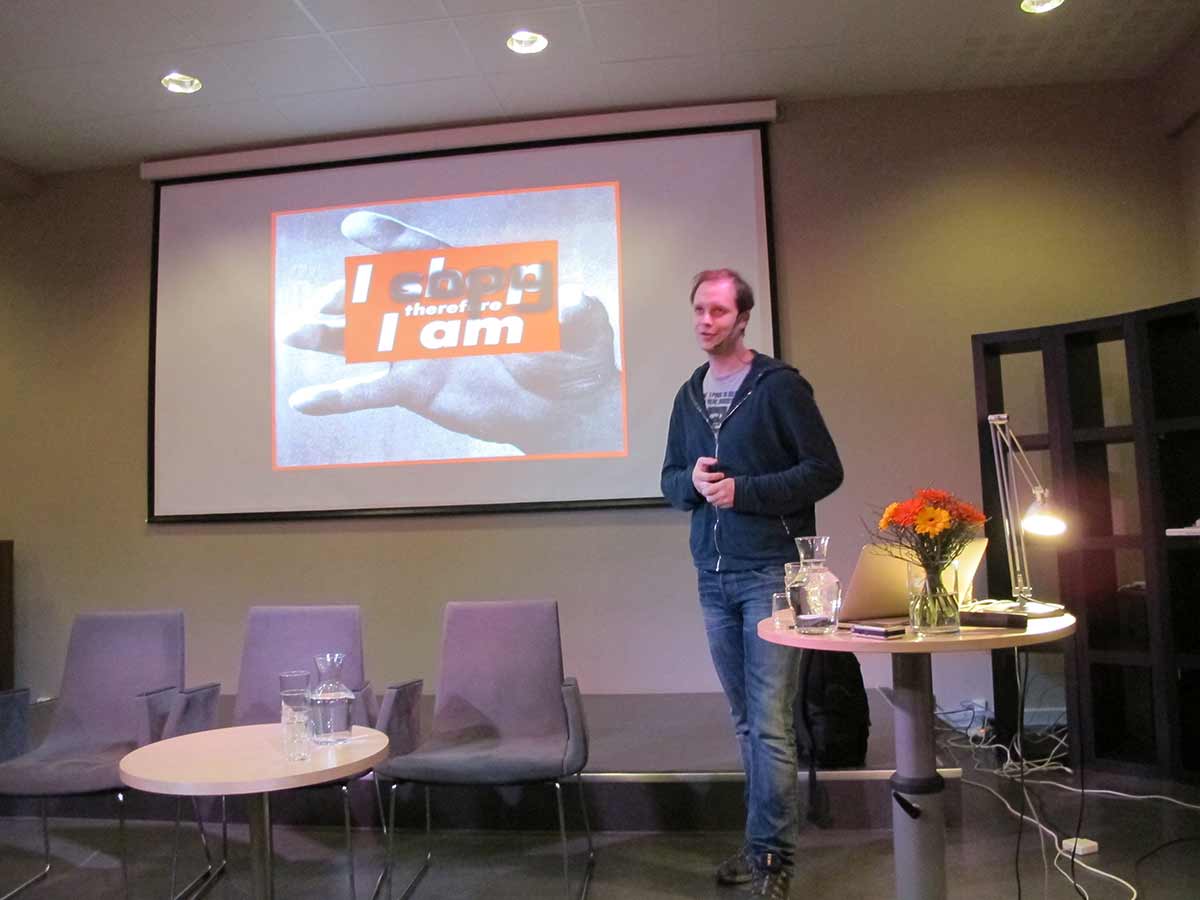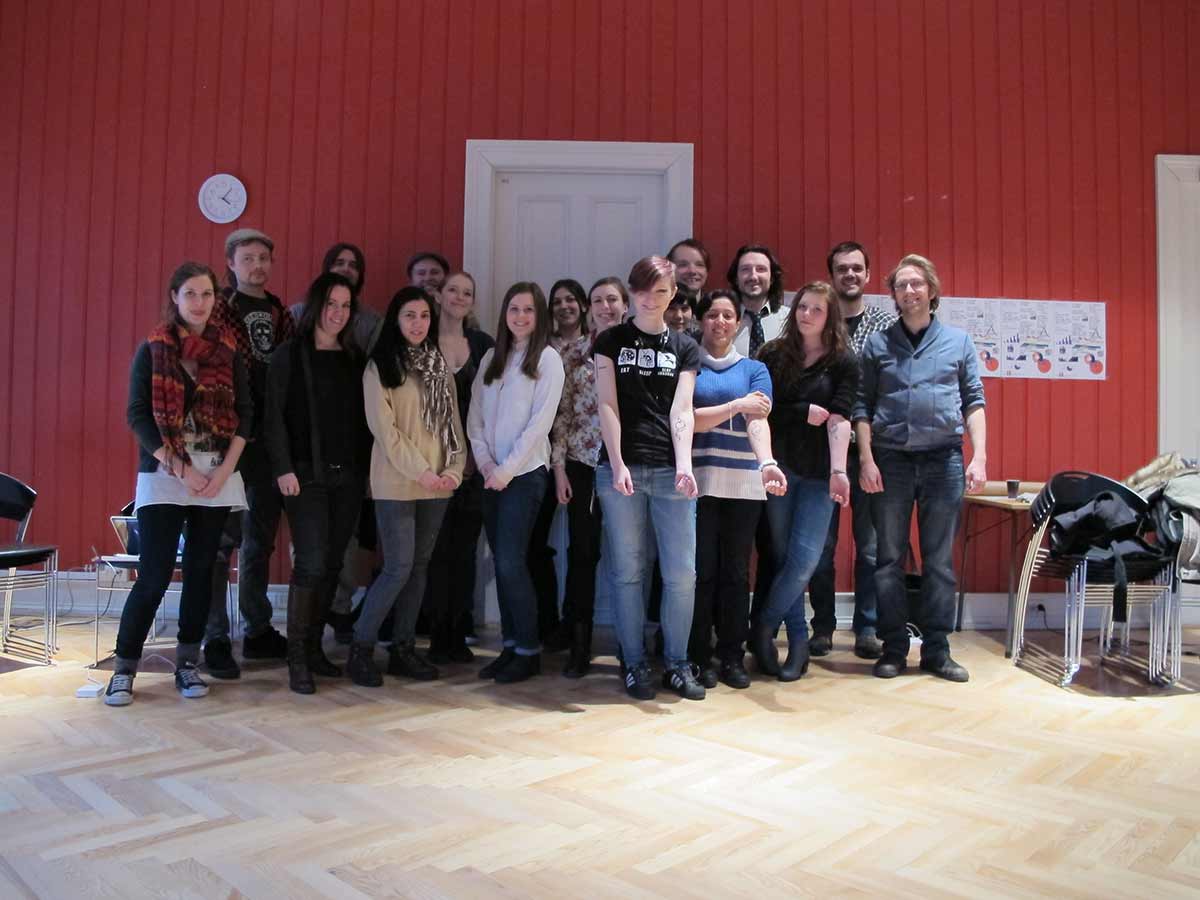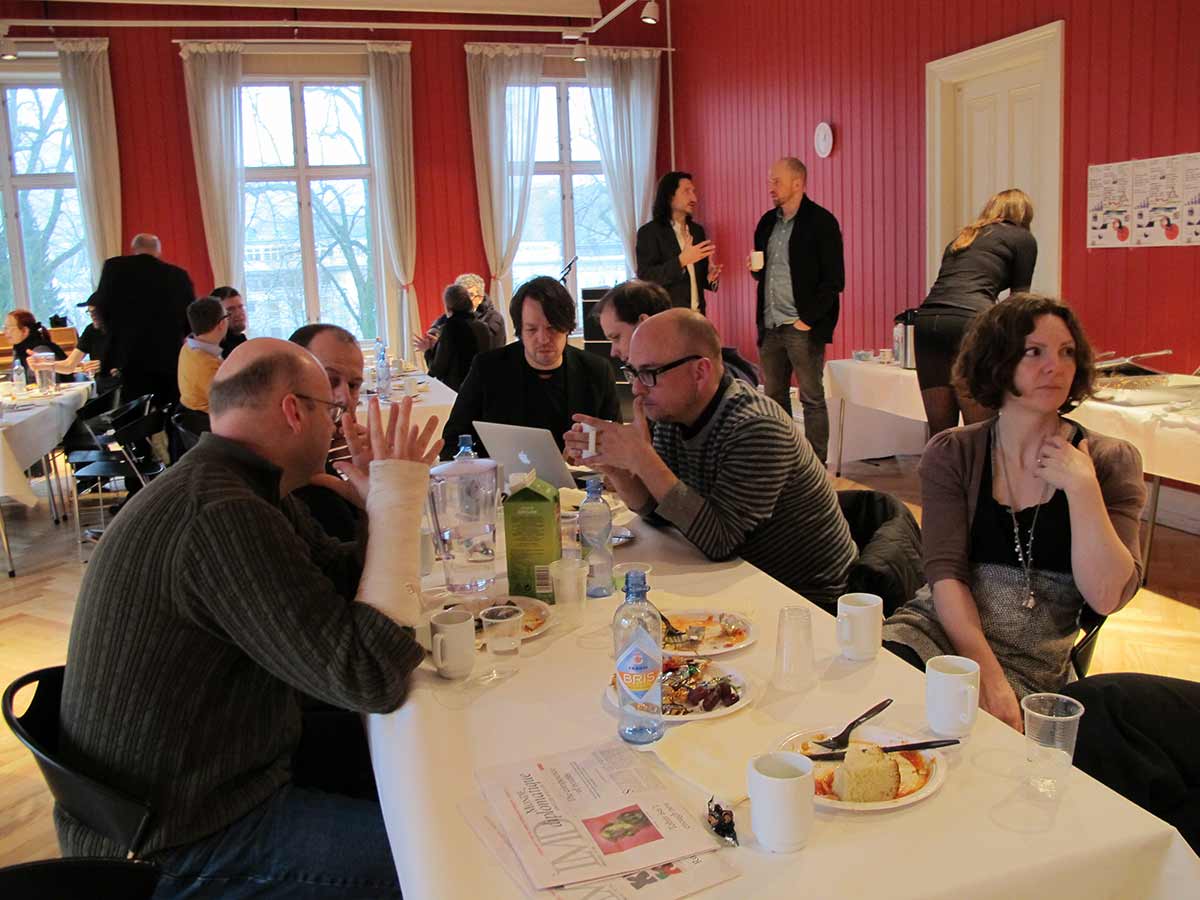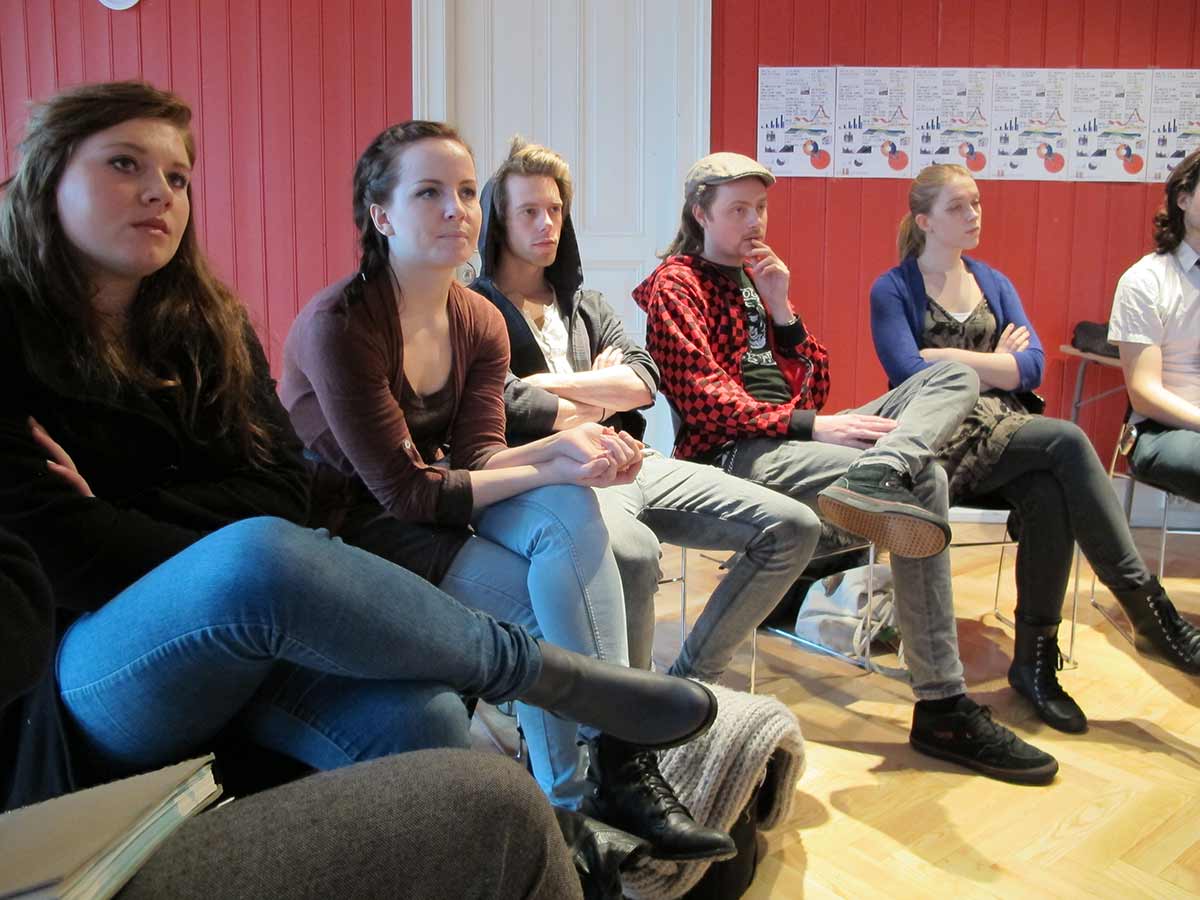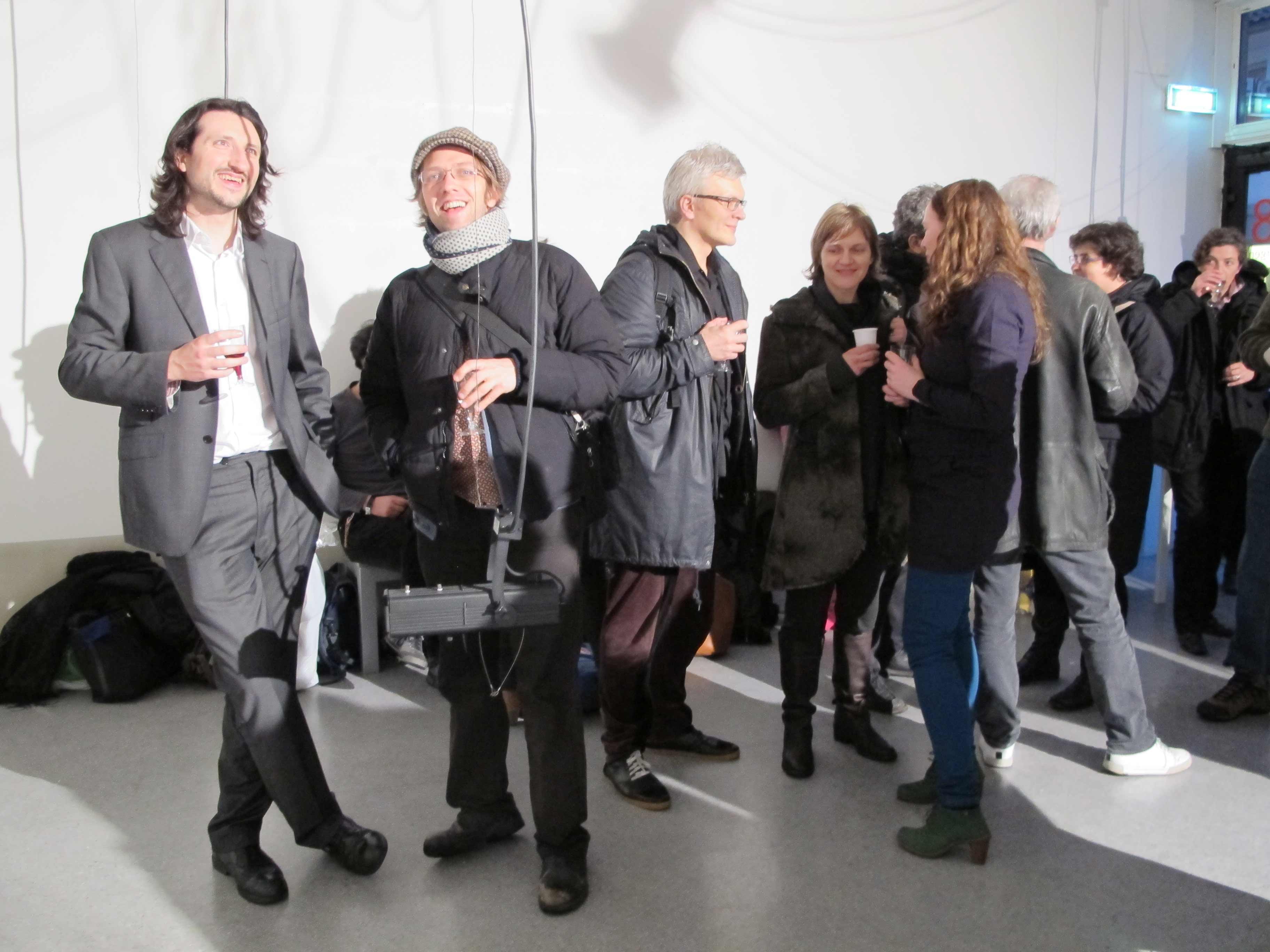Data Is Politcal: Art, Design and the Politics of Information (2012)
Data Is Political was a two day symposium and workshop at the Bergen National Academy of Art & Design in Norway that investigated the relationship betweeen art, design, and the politics of information. The event brought together artists, designers and scientists to discuss the aesthetic, ethical and spatial dimensions of information and its relation to power, the production of knowledge, and the construction of urban spaces. I conceived of the project and invited Ben Dalton, Senior Lecturer at Leeds Met University in the UK to collaborate on the organization of the symposium, which was accompanied by an exhibition, workshop, and archive.
Speakers included Philippe Rekacewicz, Peter Sunde, Nomeda & Gediminas Urbonas, Max Van Kleek, and Daniel van der Velden, with contributions from Steve Dixon, Michelle Teran, and Jill Walker Rettberg.
Excerpt from my introduction to the symposium:
Radical increases in computing power and speed together with the rhetoric of openness and organizational transparency have led to a desire to read, visualize and make sense of vast and expanding archives of digital information from financial data and government documents to global sporting events and personal video collections.
Corporations storing unprecedented archives of data on their servers have called on artists and designer to lead efforts to visualize this information, producing new opportunities for designers to use their skills on problems of seductive complexity. Often such initiatives are framed as promoting the public good. But the act of storing, structuring, manipulating, visualizing and distributing can both reveal and conceal the underlying structures and global networks to which the data refers. Far from value neutral, the act of visualizing information occurs within a complex and contentious field of competing agendas. Simply put, data is political.
Over the past fifty years, artists and designers have developed tactics that explore, remix and interrogate cultural archives as products of carefully constructed, state controlled systems of knowledge. Artists and politicians understand the value of these knowledge productions and use them as opportunities to challenge the organization of – the rules of access to – and methods of distribution of this cultural data.
Archive The Data Is Political symposium is accompanied by a growing archive of recorded conversations with artists, designers, and scientists including contributions from Ron Burnett, Amanda Cox, Philip DeCamp, Benjamin Mako Hill, Francis Irving, Marcell Mars, Dietmar Offenhuber, Casey Reas, Florian Schneider, Fernanda Viegas & Martin Wattenberg, Usman Haque, José Luis de Vicente, and Jeff Warren.
Data Is Political was developed as an interdisciplinary event at the Bergen National Academy of Art & Design in collaboration with the Jan van Eyck Academie, and the University of Bergen. The symposium has received generous support from the Verdikt programme of the Norges Forskningsråd, the KHIB Research Council, and the KHIB departments of Design and Fine Art.

